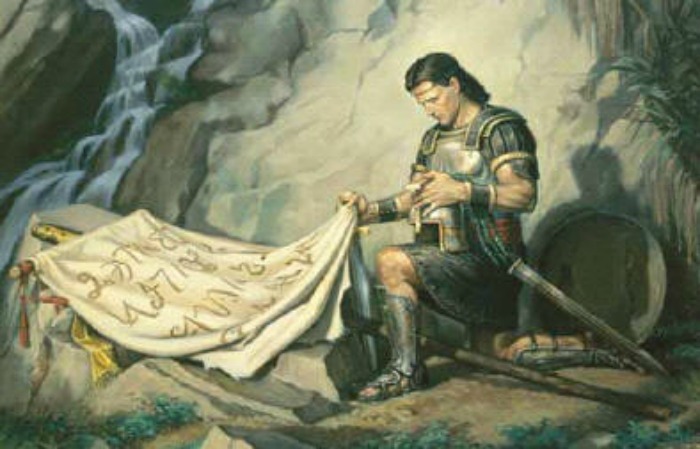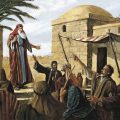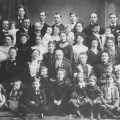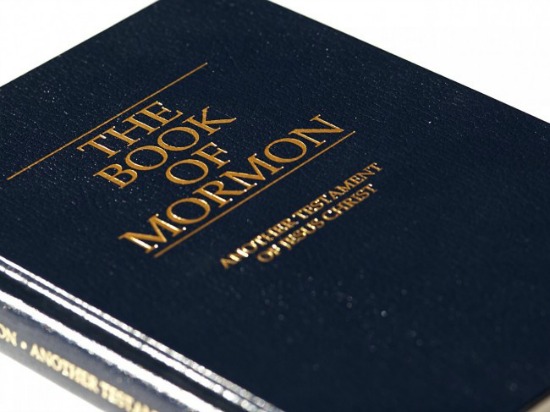Question
Dear Gramps,
In the Book of Mormon chapter 8 verses 8 and 20, I find these verses very confusing. Could you explain them to me? I cannot find it anywhere that I have searched. Thank you so much. I love your site.
Nancy
Answer
Dear Nancy,
In Mormon 8, Moroni recounts the destruction of his people and laments the death of his father, Mormon, who was killed in battle. During the time of which Moroni speaks in Mormon 8, both the Nephites and the Lamanites had turned to gross wickedness.
Mormon was called to lead the Nephites in their defense against the invading Lamanites when he was only sixteen years old. He stayed in the command of the armies through almost continual warfare until he was 52 years old, at which time the Nephites had become so wicked that he refused to continue to be their leader. He stayed aloof from the hostilities for thirteen years. Finally, he acceded to their appeals to again lead the army, in spite of the fact that he felt that there was no hope for their repentance and return to the Lord. As he again took command of the army, he stated-
But behold, I was without hope, for I knew the judgments of the Lord which should come upon them; for they repented not of their iniquities, but did struggle for their lives without calling upon that Being who created them (Mormon 5:2).
The scriptures you refer to are-
And behold, it is the hand of the Lord which hath done it. And behold also, the Lamanites are at war one with another; and the whole face of this land is one continual round of murder and bloodshed; and no one knoweth the end of the war (Mormon 8:8).
Behold what the scripture says–man shall not smite, neither shall he judge; for judgment is mine, saith the Lord, and vengeance is mine also, and I will repay (Mormon 8:20).
So Moroni in Mormon 8:8 recounts the gross wickedness of both armies, and that there was continual bloodshed throughout all the land. They would not listen to any of the Lord’s commands, let alone that man shall not smite. However, verse 20, is not a continuation of the narrative of the wicked armies, but in verse 9, he changes the subject- And now, behold, I say no more concerning them, for there are none save it be the Lamanites and robbers that do exist upon the face of the land. Moroni then talks about completing his record and hiding it up in the earth. Then, speaking of the time when the record should come forth, he predicts that there will be those who will try to gain possession of the record by force, and warns-
And he that saith: Show unto me, or ye shall be smitten–let him beware lest he commandeth that which is forbidden of the Lord (Mormon 8:18).
It is to those who would take the records by force after they had been delivered to Joseph Smith that Moroni cites the scripture,
Behold what the scripture says–man shall not smite, neither shall he judge; for judgment is mine, saith the Lord, and vengeance is mine also, and I will repay.
By the way, the scripture that Moroni cites is not available to us. It may have come from the Brass Plates of Laban, that contained many more scriptures than are in our bible of today. (See 1 Nephi 13:23) Or it could have come from the words of the Savior to the Nephites when he visited them following his resurrection, and which were not recorded on the Plates of Nephi (See John 21:25)
Gramps







